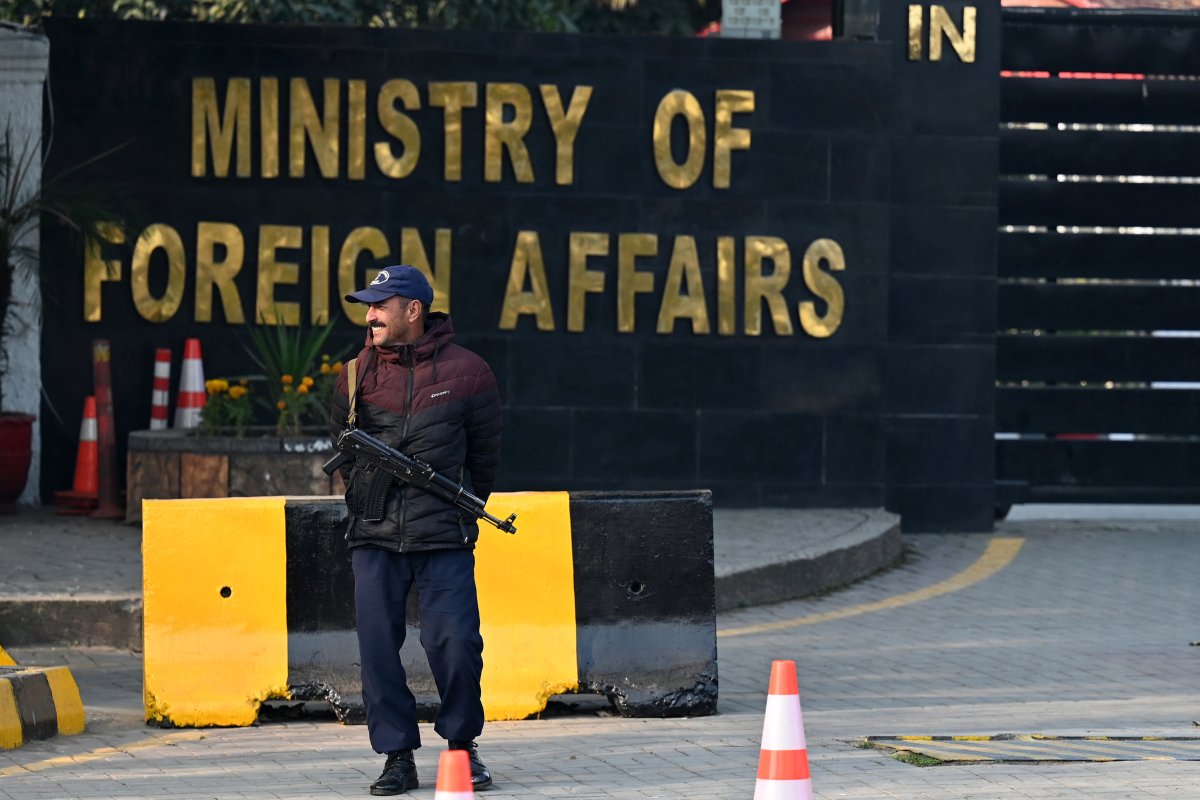Brendan Cole
Pakistan has launched missile strikes into Iran less than two days after Tehran said it had attacked terrorist targets in its neighbor.
Islamabad said Thursday's strikes had hit "terrorist hideouts" in Iran's Sistan and Baluchestan province, whose deputy governor Alireza Marhamati said killed three women and four children. "At 4:30 a.m. explosions were heard in a border village," Marhamati told state television. Another explosion took place near the city of Saravan, but there were no casualties, he added.
Pakistan said the strikes were part of an operation called "Marg Bar Sarmachar," which loosely translates to "death to the guerrilla fighters," and that a "number" of militants had been killed "in highly coordinated and specifically targeted precision military strikes."
 A
A Pakistani police officer stands guard outside the Ministry of Foreign Affairs in Islamabad on January 18, 2024. Pakistan said it attacked militant targets in Iran, after Tehran launched attacks on Pakistani territory earlier this week.
An unnamed Pakistani intelligence source told Reuters that Islamabad had conducted the strikes with military aircraft to target militants in the Baloch Liberation Front (BLF), which seeks independence for Pakistan's Balochistan province and is waging an armed insurgency against the Pakistani state.
Pakistan's foreign ministry said it "fully respects" Iran's "sovereignty and territorial integrity" but was demonstrating its "unflinching resolve to protect and defend its national security against all threats."
Islamabad had warned Tehran of "serious consequences" for its strike on Pakistan's Balochistan province on Tuesday, which it said had killed two children. It subsequently withdrew its ambassador to Tehran on Wednesday.
Tehran said its strikes in Pakistan had targeted the Jaish al Adl (JAA), an ethnic militant group, with Sunni Islamist leanings considered a threat by predominantly Shi'ite Iran.
Khwaja Asif, Pakistan's defense minister until August, told local news outlet Geo TV that the action was "a measured response" and that there should be "ongoing efforts on the side that this doesn't escalate."
But Tehran has demanded "an immediate explanation" from Pakistan over Thursday's strikes and summoned Pakistan's chargé d'affaires, Iran's Tasnim news agency said. The strikes by both countries were on groups that are ethnically Baloch, but it is not clear if they co-operate.
The attacks threaten to inflame ties between the nuclear-armed neighbors who have long accused each other of harboring militants.
They come amid a time of increasing tensions in the region caused by the war between Israel and Hamas, which is backed by Tehran, as well as U.S. strikes against Iranian-allied Houthi militants.
Asfandyr Mir, from the U.S. Institute of Peace, told Reuters that the concern is Pakistan "has crossed a line by hitting inside Iranian territory, a threshold that even the U.S. and Israel have been careful to not breach."
No comments:
Post a Comment